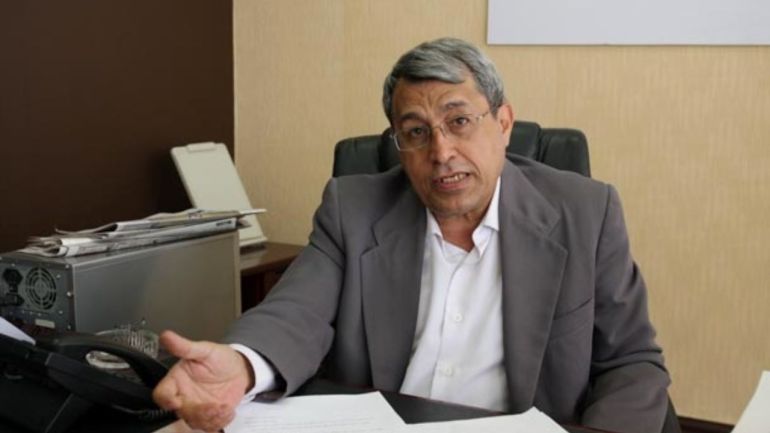Six years have passed since Iran waited to reap the fruits of the nuclear agreement signed in 2015 with the West, but the bulk of its harvest so far has been nothing but harsh US economic sanctions, and the failure of the signatories to the agreement to fulfill their pledges to Tehran.
In an attempt to bridge the gaps, Iran headed from the west of the world to its east, where it signed a 25-year memorandum of understanding with China, hoping - this time - to achieve economic prosperity that it did not succeed in achieving with the West.
This memorandum - whose initial framework has been presented since January 2016 - includes cooperation in the fields of oil and energy, infrastructure development, security areas, industrial investment, as well as strengthening the logistical capacity of Iranian ports.
After the memorandum was signed, sections of Iranian society, as well as political and economic analysts, were divided into two groups: in favor and against this move.
Perhaps the failure to publish the details and contents of the partnership memorandum is the common denominator in the statements of both parties.
Supporters of the note
Supporters of the memorandum of understanding agreed that its usefulness lies in helping Iran maintain its international economic participation during the period of comprehensive US sanctions, and it may also urge the West to return to the nuclear deal and re-engage with it.
They also believe that the expected rise in Iranian oil and gas production - and thus an increase in Chinese imports - is one of the most important features of the Chinese contract with Iran, in addition to that the Western absence and Iran's need for technology in this field will lead to the development of Iranian oil and gas facilities.
Supporters of the agreement pointed to another positive aspect that should not be overlooked, which is China's participation in developing Iran's vital infrastructure, which is worth about $ 400 billion, which is in line with China's initiative to cross the Silk Road from Iran, which will constitute a major breakthrough in light of the scarcity of foreign investment. Which Iran has suffered for years due to sanctions.
Dr. Hussein Raghfir believes that the Chinese only think about their own interests (communication sites)
Iran is not for sale
On the other hand, this agreement was not widely welcomed by many citizens who gathered in some areas, including in front of the Iranian parliament.
In protest against the agreement, they also expressed their displeasure with the memorandum on social media, under the hashtag # Iran_Froshi_Nest (Iran is not for sale).
Dr. Hussain Raghfar, an economic analyst and professor of economics at Al Zahra University, believes that the Chinese only think about their own interests. Even in Iran itself, it abandoned many projects, including oil and gas projects and road construction, and they left Iran.
Surprising agreement
Rajfer added - in his speech to Al Jazeera Net - that the signing of the agreement came suddenly, due to American pressure and the meeting between the US and Chinese foreign ministers last week, where China used Iran’s card to put pressure on the United States.
Among the most prominent criticism of the memorandum by the protesters is the government's refusal to publish the details of the agreement, and in this regard, some officials responded that this memorandum is not binding, and it is only a road map, and the details will be published in conjunction with the signing of the agreement, and others indicated that the US sanctions represent a barrier to publishing Details, while some threw the ball towards China, saying they did not agree to publish the details.
In this context, university professor and economist Bahman Arman said, "Due to the presence of US sanctions, as well as the withdrawal of Chinese companies from Iran because of them, as well as Iran's failure to accept the agreements of the Financial Action Task Force-FATF). The memorandum does not appear to achieve its goals, while the proceeds from the sale of Iranian oil to China (estimated at $ 22 billion) are still withheld and have not been returned to Iran.
Dr. Bahman Arman believes that the memorandum will not achieve its goals in light of the US sanctions (communication sites)
Arab countries and the region
Arman added to Al-Jazeera Net that Iran's economic development provides good investment opportunities for neighboring countries, and many private companies from the Gulf countries have expressed their interest in investing in the Iranian foodstuff industry, and a Saudi company (Savola) now owns the highest stake in the largest producer of crude vegetable oil in Iran. .
Arman said that the percentage of Iranian oil exports to China will not rise above a certain limit, due to the lack of technology in Iran's oil facilities, and on the other hand the Gulf countries are trying to reduce their sales of crude oil so that by 2025 they will sell more refined products, so there is no place for concern. When the Gulf countries from this agreement.
According to the memo, China and Iran are looking to implement joint projects to build power stations and establish an international railway line, as well as rebuilding the countries of the region, including Iraq, Syria, Afghanistan and Pakistan.
In light of the lack of knowledge of the details of this memorandum and the absence of an obligation for both countries to fulfill their promises, as well as removing obstacles to the agreement, including the lifting of US sanctions, the presence of Chinese companies in Iran, and Iran's joining the Financial Action Task Force (FATF) to conduct international financial exchanges. ;
It appears that Iran's economy will not make any qualitative leap.
According to Majid Reza Hariri, head of the Iran-China Chamber of Commerce, it will take more than two years to record the details of this document.

